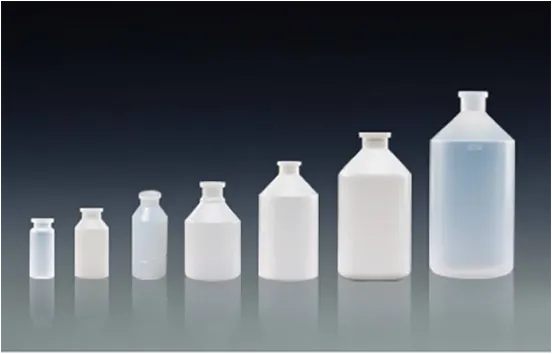Understanding the Various Applications of Centrifuge Bottles in Laboratory Settings and Research
Centrifuge Bottles Essential Tools in Laboratory Practices
Centrifuge bottles are pivotal instruments in the world of laboratory research, serving a wide array of functions that enhance various scientific processes. These specialized containers are designed to withstand the high speeds and forces generated during centrifugation, a process that separates components of a mixture based on their density. Understanding the diverse applications of centrifuge bottles in laboratory settings illuminates their importance in research and analytical practices.
Centrifuge Bottles Essential Tools in Laboratory Practices
Centrifuge bottles are also widely used in the pharmaceutical industry, particularly in drug formulation and testing. In this field, researchers need to separate active pharmaceutical ingredients (APIs) from solvents or other excipients during the development of new medications. The use of centrifuge bottles facilitates the purification and concentration of these compounds, which is crucial for ensuring the potency and safety of pharmaceutical products. Moreover, the bottles are often designed with high compatibility with various solvents and are resistant to temperature variations, making them ideal for a wide range of chemical applications.
centrifuge bottle uses in laboratory

Another significant application of centrifuge bottles lies within environmental laboratories, where they are used to analyze soil, water, and air samples. Environmental scientists often need to isolate contaminants or particulates from samples to assess pollution levels or study microbial communities. Centrifuge bottles allow for effective sedimentation of these elements, providing researchers with clear samples for further testing and analysis.
Furthermore, centrifuge bottles come in various sizes and materials, allowing for bespoke applications tailored to specific research needs. Common materials include polypropylene and polycarbonate, which offer good chemical resistance and strength. The size of the bottle can vary from small volumes for microcentrifugation to larger volumes for industrial applications. This versatility means that regardless of the scale of the experiment, there is likely a suitable centrifuge bottle available.
In addition to their practical applications, centrifuge bottles contribute to the safety and efficiency of laboratory work. Many modern centrifuge bottles are designed with secure sealing mechanisms to prevent spills and contamination during the centrifugation process. This is particularly important when dealing with hazardous or sensitive samples. Moreover, the transparency of the materials used allows for easy observation of the sample, further facilitating monitoring and analysis.
In conclusion, centrifuge bottles are indispensable tools in both research and industrial laboratories. Their ability to facilitate the separation of components in various types of samples makes them crucial for biological, pharmaceutical, and environmental studies. As scientific research continues to advance, the design and application of centrifuge bottles will also evolve, aiding researchers in their quest for knowledge by providing efficient, reliable, and safe methods for sample analysis and processing. The importance of these bottles in laboratory practices cannot be overstated, as they play a vital role in ensuring the accuracy and validity of experimental results across numerous fields of study.
-
Plastic Medicine Liquid Bottle: Secure Flip Top Drug VialsNewsAug.17,2025
-
Durable 250ml Blue Plastic Vaccine Vial for Lab & Vet UseNewsAug.16,2025
-
Sterile Virus Sample Tubes: Secure & Reliable Specimen CollectionNewsAug.15,2025
-
White 250ml Plastic Vaccine Vial for Lab & Vet MedicineNewsAug.14,2025
-
Premium Clear Plastic Vaccine Vials for Lab & Vet MedicineNewsAug.13,2025
-
Plastic Clear Vaccine Vials | Lab & Vet Liquid StorageNewsAug.12,2025
























